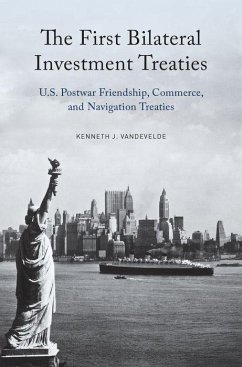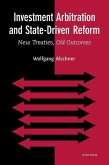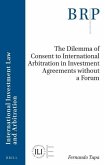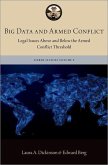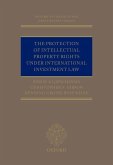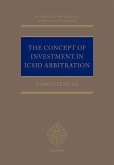Kenneth J. Vandevelde (Thomas Jefferson School of Professor of Law
The First Bilateral Investment Treaties
U.S. Postwar Friendship, Commerce, and Navigation Treaties
Kenneth J. Vandevelde (Thomas Jefferson School of Professor of Law
The First Bilateral Investment Treaties
U.S. Postwar Friendship, Commerce, and Navigation Treaties
- Gebundenes Buch
- Merkliste
- Auf die Merkliste
- Bewerten Bewerten
- Teilen
- Produkt teilen
- Produkterinnerung
- Produkterinnerung
This book is the first and only history of the U.S. postwar Friendship, Commerce, and Navigation (FCN) treaty program, and focuses on the investment-related provisions of those treaties. This author explains the original understanding of the language of this vast network of agreements which have been and continue to be the subject of hundreds of international arbitrations and billions of dollars in claims. It is based on a review of some 32,000 pages of negotiating history housed in the National Archives.
Andere Kunden interessierten sich auch für
![Investment Arbitration and State-Driven Reform Investment Arbitration and State-Driven Reform]() Wolfgang Alschner (Associate Professor, Faculty of Law, Associate PInvestment Arbitration and State-Driven Reform142,99 €
Wolfgang Alschner (Associate Professor, Faculty of Law, Associate PInvestment Arbitration and State-Driven Reform142,99 €![The Dilemma of Consent to International Arbitration in Investment Agreements Without a Forum The Dilemma of Consent to International Arbitration in Investment Agreements Without a Forum]() Fernando TupaThe Dilemma of Consent to International Arbitration in Investment Agreements Without a Forum94,99 €
Fernando TupaThe Dilemma of Consent to International Arbitration in Investment Agreements Without a Forum94,99 €![The History of ICSID The History of ICSID]() Antonio R. Parra (Consultant with the Corporate Secretariat of theThe History of ICSID181,99 €
Antonio R. Parra (Consultant with the Corporate Secretariat of theThe History of ICSID181,99 €![Big Data and Armed Conflict Big Data and Armed Conflict]() Big Data and Armed Conflict131,99 €
Big Data and Armed Conflict131,99 €![Standards of Investment Protection Standards of Investment Protection]() Standards of Investment Protection204,99 €
Standards of Investment Protection204,99 €![The Protection of Intellectual Property Rights Under International Investment Law The Protection of Intellectual Property Rights Under International Investment Law]() Simon Klopschinski (Associate, Associate, Rospatt Osten Pross)The Protection of Intellectual Property Rights Under International Investment Law238,99 €
Simon Klopschinski (Associate, Associate, Rospatt Osten Pross)The Protection of Intellectual Property Rights Under International Investment Law238,99 €![The Concept of Investment in ICSID Arbitration The Concept of Investment in ICSID Arbitration]() Markus Petsche (Associate Professor, Associate Professor, Central EThe Concept of Investment in ICSID Arbitration195,99 €
Markus Petsche (Associate Professor, Associate Professor, Central EThe Concept of Investment in ICSID Arbitration195,99 €-
-
-
This book is the first and only history of the U.S. postwar Friendship, Commerce, and Navigation (FCN) treaty program, and focuses on the investment-related provisions of those treaties. This author explains the original understanding of the language of this vast network of agreements which have been and continue to be the subject of hundreds of international arbitrations and billions of dollars in claims. It is based on a review of some 32,000 pages of negotiating history housed in the National Archives.
Hinweis: Dieser Artikel kann nur an eine deutsche Lieferadresse ausgeliefert werden.
Hinweis: Dieser Artikel kann nur an eine deutsche Lieferadresse ausgeliefert werden.
Produktdetails
- Produktdetails
- Verlag: Oxford University Press Inc
- Seitenzahl: 592
- Erscheinungstermin: 3. Mai 2017
- Englisch
- Abmessung: 236mm x 157mm x 43mm
- Gewicht: 992g
- ISBN-13: 9780190679576
- ISBN-10: 0190679573
- Artikelnr.: 47866371
- Herstellerkennzeichnung
- Libri GmbH
- Europaallee 1
- 36244 Bad Hersfeld
- 06621 890
- Verlag: Oxford University Press Inc
- Seitenzahl: 592
- Erscheinungstermin: 3. Mai 2017
- Englisch
- Abmessung: 236mm x 157mm x 43mm
- Gewicht: 992g
- ISBN-13: 9780190679576
- ISBN-10: 0190679573
- Artikelnr.: 47866371
- Herstellerkennzeichnung
- Libri GmbH
- Europaallee 1
- 36244 Bad Hersfeld
- 06621 890
Kenneth J. Vandevelde is Professor of Law at Thomas Jefferson School of Law where he teaches international investment law and arbitration as well as public international law. He served as President and Dean of the law school from 1994 to 2005. Professor Vandevelde published extensively on international investment law, arbitration, and bilateral investment treaties authoring: United States Investment Treaties: Policy and Practice (1992), U.S. International Investment Agreements (Oxford, 2009), and Bilateral Investment Treaties: History, Policy, and Interpretation (Oxford, 2010). He published a number of articles on international investment law included in the American Journal of International Law. He served as a consultant on international investment law to the Senate Foreign Relations Committee, the United Nations and various foreign governments. He worked at the U.S. Department of State's Office of the Legal Adviser and the Execut
* Introduction
* About This Book
* New Deal Liberalism
* New Deal Liberalism in U.S. Foreign Investment Policy
* 1. U.S. Postwar Foreign Investment Policy
* Promoting Global Full Employment
* The Role of International Investment
* The Need to Promote and Regulate International Investment
* Developing a Foreign Investment Policy
* 2. Launching the U.S. Postwar FCN Treaty Program
* Inauguration of the U.S. Postwar FCN Treaty Program
* Preparing a Standard Draft Treaty
* The Influence of the American Business Community
* Negotiating the First Postwar FCN Treaty: China
* Negotiating an FCN Treaty with Italy
* Proposing an FCN Treaty with the Soviet Union
* 3. Seeking a Multilateral Treaty on Investment: The International
Trade Organization
* The Proposal for an International Trade Organization
* The London Preparatory Meeting
* The Proposal for an Investment Code
* Drafting an Investment Code
* Proposing an Investment Code in Geneva
* Amending the U.S. Proposal in Geneva
* Negotiating the U.S. Proposal in Geneva
* The Cold War Comes to Geneva
* 4. Abandoning the International Trade Organization
* Devising a Strategy for the Havana Conference
* The Havana Conference
* The Aftermath of the Havana Conference
* 5. The FCN Treaties Become Investment Treaties
* Truman Proposes the Point Four Program
* Creating a Point Four Program
* Contemplating a New Investment Treaty
* Point Four Assistance and FCN Treaties
* Negotiating an FCN Treaty with Colombia
* Negotiating an FCN treaty with Uruguay
* Negotiating an FCN Treaty with Ireland
* Senate Advice and Consent to Ratification 1950
* 6. Negotiating the First Bilateral Investment Treaties: The Truman
Years
* U.S. Negotiating Strategy
* Negotiating an FCN Treaty with Greece
* Negotiating an FCN Treaty with Denmark
* Negotiating with Italy -- Again
* Negotiating an FCN Treaty with Israel
* Negotiating an FCN Treaty with Ethiopia
* Negotiating an FCN Treaty with Japan
* Senate Advice and Consent to Ratification 1952-1953
* Investment Treaties at the End of the Truman Administration
* 7. Negotiating the First Bilateral Investment Treaties: After the
Truman Years
* Negotiating an FCN Treaty with Germany
* Negotiating an FCN treaty with Haiti
* Negotiating an FCN Treaty with Iran
* Negotiating an FCN Treaty with Nicaragua
* Negotiating an FCN Treaty with the Netherlands
* Negotiating an FCN Treaty with Korea
* Negotiating an FCN treaty with the Sultanate of Muscat and Oman
* Negotiating an FCN Treaty with Pakistan
* Negotiating an FCN Treaty with France
* Senate Advice and Consent to Ratification 1960
* Negotiating an FCN treaty with Belgium
* Negotiating an FCN Treaty with Vietnam
* Senate Advice and Consent to Ratification 1961
* Negotiating an FCN Treaty with Togo
* Negotiating an FCN Treaty with Thailand
* Continuity in the Kennedy, Johnson, Nixon and Ford Administrations
* 8. The International Law of Foreign Investment in the FCN Treaties
* Companies Protected by the Treaty
* Fair and Equitable Treatment
* Most Constant Protection and Security
* Treatment in Accordance with International Law
* Unreasonable or Discriminatory Measures
* National Treatment
* Most Favored Nation Treatment
* Expropriation
* Exchange Controls
* Employment
* Entry and Sojourn
* Judicial Access
* CoTransparency
* International Peace and Security
* Essential Security Interests
* Consultations
* Compromissory Clause
* Epilogue
* Appendix
* Excerpts from the 1955 Standard Draft U.S. FCN Treaty
* Index
* About This Book
* New Deal Liberalism
* New Deal Liberalism in U.S. Foreign Investment Policy
* 1. U.S. Postwar Foreign Investment Policy
* Promoting Global Full Employment
* The Role of International Investment
* The Need to Promote and Regulate International Investment
* Developing a Foreign Investment Policy
* 2. Launching the U.S. Postwar FCN Treaty Program
* Inauguration of the U.S. Postwar FCN Treaty Program
* Preparing a Standard Draft Treaty
* The Influence of the American Business Community
* Negotiating the First Postwar FCN Treaty: China
* Negotiating an FCN Treaty with Italy
* Proposing an FCN Treaty with the Soviet Union
* 3. Seeking a Multilateral Treaty on Investment: The International
Trade Organization
* The Proposal for an International Trade Organization
* The London Preparatory Meeting
* The Proposal for an Investment Code
* Drafting an Investment Code
* Proposing an Investment Code in Geneva
* Amending the U.S. Proposal in Geneva
* Negotiating the U.S. Proposal in Geneva
* The Cold War Comes to Geneva
* 4. Abandoning the International Trade Organization
* Devising a Strategy for the Havana Conference
* The Havana Conference
* The Aftermath of the Havana Conference
* 5. The FCN Treaties Become Investment Treaties
* Truman Proposes the Point Four Program
* Creating a Point Four Program
* Contemplating a New Investment Treaty
* Point Four Assistance and FCN Treaties
* Negotiating an FCN Treaty with Colombia
* Negotiating an FCN treaty with Uruguay
* Negotiating an FCN Treaty with Ireland
* Senate Advice and Consent to Ratification 1950
* 6. Negotiating the First Bilateral Investment Treaties: The Truman
Years
* U.S. Negotiating Strategy
* Negotiating an FCN Treaty with Greece
* Negotiating an FCN Treaty with Denmark
* Negotiating with Italy -- Again
* Negotiating an FCN Treaty with Israel
* Negotiating an FCN Treaty with Ethiopia
* Negotiating an FCN Treaty with Japan
* Senate Advice and Consent to Ratification 1952-1953
* Investment Treaties at the End of the Truman Administration
* 7. Negotiating the First Bilateral Investment Treaties: After the
Truman Years
* Negotiating an FCN Treaty with Germany
* Negotiating an FCN treaty with Haiti
* Negotiating an FCN Treaty with Iran
* Negotiating an FCN Treaty with Nicaragua
* Negotiating an FCN Treaty with the Netherlands
* Negotiating an FCN Treaty with Korea
* Negotiating an FCN treaty with the Sultanate of Muscat and Oman
* Negotiating an FCN Treaty with Pakistan
* Negotiating an FCN Treaty with France
* Senate Advice and Consent to Ratification 1960
* Negotiating an FCN treaty with Belgium
* Negotiating an FCN Treaty with Vietnam
* Senate Advice and Consent to Ratification 1961
* Negotiating an FCN Treaty with Togo
* Negotiating an FCN Treaty with Thailand
* Continuity in the Kennedy, Johnson, Nixon and Ford Administrations
* 8. The International Law of Foreign Investment in the FCN Treaties
* Companies Protected by the Treaty
* Fair and Equitable Treatment
* Most Constant Protection and Security
* Treatment in Accordance with International Law
* Unreasonable or Discriminatory Measures
* National Treatment
* Most Favored Nation Treatment
* Expropriation
* Exchange Controls
* Employment
* Entry and Sojourn
* Judicial Access
* CoTransparency
* International Peace and Security
* Essential Security Interests
* Consultations
* Compromissory Clause
* Epilogue
* Appendix
* Excerpts from the 1955 Standard Draft U.S. FCN Treaty
* Index
* Introduction
* About This Book
* New Deal Liberalism
* New Deal Liberalism in U.S. Foreign Investment Policy
* 1. U.S. Postwar Foreign Investment Policy
* Promoting Global Full Employment
* The Role of International Investment
* The Need to Promote and Regulate International Investment
* Developing a Foreign Investment Policy
* 2. Launching the U.S. Postwar FCN Treaty Program
* Inauguration of the U.S. Postwar FCN Treaty Program
* Preparing a Standard Draft Treaty
* The Influence of the American Business Community
* Negotiating the First Postwar FCN Treaty: China
* Negotiating an FCN Treaty with Italy
* Proposing an FCN Treaty with the Soviet Union
* 3. Seeking a Multilateral Treaty on Investment: The International
Trade Organization
* The Proposal for an International Trade Organization
* The London Preparatory Meeting
* The Proposal for an Investment Code
* Drafting an Investment Code
* Proposing an Investment Code in Geneva
* Amending the U.S. Proposal in Geneva
* Negotiating the U.S. Proposal in Geneva
* The Cold War Comes to Geneva
* 4. Abandoning the International Trade Organization
* Devising a Strategy for the Havana Conference
* The Havana Conference
* The Aftermath of the Havana Conference
* 5. The FCN Treaties Become Investment Treaties
* Truman Proposes the Point Four Program
* Creating a Point Four Program
* Contemplating a New Investment Treaty
* Point Four Assistance and FCN Treaties
* Negotiating an FCN Treaty with Colombia
* Negotiating an FCN treaty with Uruguay
* Negotiating an FCN Treaty with Ireland
* Senate Advice and Consent to Ratification 1950
* 6. Negotiating the First Bilateral Investment Treaties: The Truman
Years
* U.S. Negotiating Strategy
* Negotiating an FCN Treaty with Greece
* Negotiating an FCN Treaty with Denmark
* Negotiating with Italy -- Again
* Negotiating an FCN Treaty with Israel
* Negotiating an FCN Treaty with Ethiopia
* Negotiating an FCN Treaty with Japan
* Senate Advice and Consent to Ratification 1952-1953
* Investment Treaties at the End of the Truman Administration
* 7. Negotiating the First Bilateral Investment Treaties: After the
Truman Years
* Negotiating an FCN Treaty with Germany
* Negotiating an FCN treaty with Haiti
* Negotiating an FCN Treaty with Iran
* Negotiating an FCN Treaty with Nicaragua
* Negotiating an FCN Treaty with the Netherlands
* Negotiating an FCN Treaty with Korea
* Negotiating an FCN treaty with the Sultanate of Muscat and Oman
* Negotiating an FCN Treaty with Pakistan
* Negotiating an FCN Treaty with France
* Senate Advice and Consent to Ratification 1960
* Negotiating an FCN treaty with Belgium
* Negotiating an FCN Treaty with Vietnam
* Senate Advice and Consent to Ratification 1961
* Negotiating an FCN Treaty with Togo
* Negotiating an FCN Treaty with Thailand
* Continuity in the Kennedy, Johnson, Nixon and Ford Administrations
* 8. The International Law of Foreign Investment in the FCN Treaties
* Companies Protected by the Treaty
* Fair and Equitable Treatment
* Most Constant Protection and Security
* Treatment in Accordance with International Law
* Unreasonable or Discriminatory Measures
* National Treatment
* Most Favored Nation Treatment
* Expropriation
* Exchange Controls
* Employment
* Entry and Sojourn
* Judicial Access
* CoTransparency
* International Peace and Security
* Essential Security Interests
* Consultations
* Compromissory Clause
* Epilogue
* Appendix
* Excerpts from the 1955 Standard Draft U.S. FCN Treaty
* Index
* About This Book
* New Deal Liberalism
* New Deal Liberalism in U.S. Foreign Investment Policy
* 1. U.S. Postwar Foreign Investment Policy
* Promoting Global Full Employment
* The Role of International Investment
* The Need to Promote and Regulate International Investment
* Developing a Foreign Investment Policy
* 2. Launching the U.S. Postwar FCN Treaty Program
* Inauguration of the U.S. Postwar FCN Treaty Program
* Preparing a Standard Draft Treaty
* The Influence of the American Business Community
* Negotiating the First Postwar FCN Treaty: China
* Negotiating an FCN Treaty with Italy
* Proposing an FCN Treaty with the Soviet Union
* 3. Seeking a Multilateral Treaty on Investment: The International
Trade Organization
* The Proposal for an International Trade Organization
* The London Preparatory Meeting
* The Proposal for an Investment Code
* Drafting an Investment Code
* Proposing an Investment Code in Geneva
* Amending the U.S. Proposal in Geneva
* Negotiating the U.S. Proposal in Geneva
* The Cold War Comes to Geneva
* 4. Abandoning the International Trade Organization
* Devising a Strategy for the Havana Conference
* The Havana Conference
* The Aftermath of the Havana Conference
* 5. The FCN Treaties Become Investment Treaties
* Truman Proposes the Point Four Program
* Creating a Point Four Program
* Contemplating a New Investment Treaty
* Point Four Assistance and FCN Treaties
* Negotiating an FCN Treaty with Colombia
* Negotiating an FCN treaty with Uruguay
* Negotiating an FCN Treaty with Ireland
* Senate Advice and Consent to Ratification 1950
* 6. Negotiating the First Bilateral Investment Treaties: The Truman
Years
* U.S. Negotiating Strategy
* Negotiating an FCN Treaty with Greece
* Negotiating an FCN Treaty with Denmark
* Negotiating with Italy -- Again
* Negotiating an FCN Treaty with Israel
* Negotiating an FCN Treaty with Ethiopia
* Negotiating an FCN Treaty with Japan
* Senate Advice and Consent to Ratification 1952-1953
* Investment Treaties at the End of the Truman Administration
* 7. Negotiating the First Bilateral Investment Treaties: After the
Truman Years
* Negotiating an FCN Treaty with Germany
* Negotiating an FCN treaty with Haiti
* Negotiating an FCN Treaty with Iran
* Negotiating an FCN Treaty with Nicaragua
* Negotiating an FCN Treaty with the Netherlands
* Negotiating an FCN Treaty with Korea
* Negotiating an FCN treaty with the Sultanate of Muscat and Oman
* Negotiating an FCN Treaty with Pakistan
* Negotiating an FCN Treaty with France
* Senate Advice and Consent to Ratification 1960
* Negotiating an FCN treaty with Belgium
* Negotiating an FCN Treaty with Vietnam
* Senate Advice and Consent to Ratification 1961
* Negotiating an FCN Treaty with Togo
* Negotiating an FCN Treaty with Thailand
* Continuity in the Kennedy, Johnson, Nixon and Ford Administrations
* 8. The International Law of Foreign Investment in the FCN Treaties
* Companies Protected by the Treaty
* Fair and Equitable Treatment
* Most Constant Protection and Security
* Treatment in Accordance with International Law
* Unreasonable or Discriminatory Measures
* National Treatment
* Most Favored Nation Treatment
* Expropriation
* Exchange Controls
* Employment
* Entry and Sojourn
* Judicial Access
* CoTransparency
* International Peace and Security
* Essential Security Interests
* Consultations
* Compromissory Clause
* Epilogue
* Appendix
* Excerpts from the 1955 Standard Draft U.S. FCN Treaty
* Index

